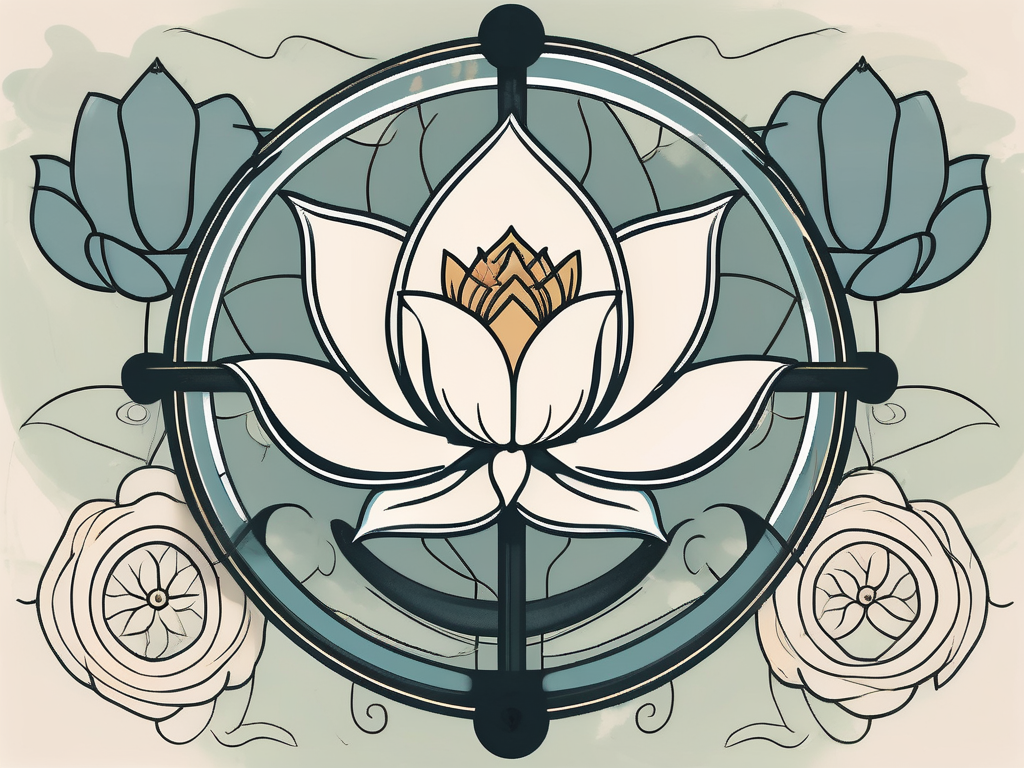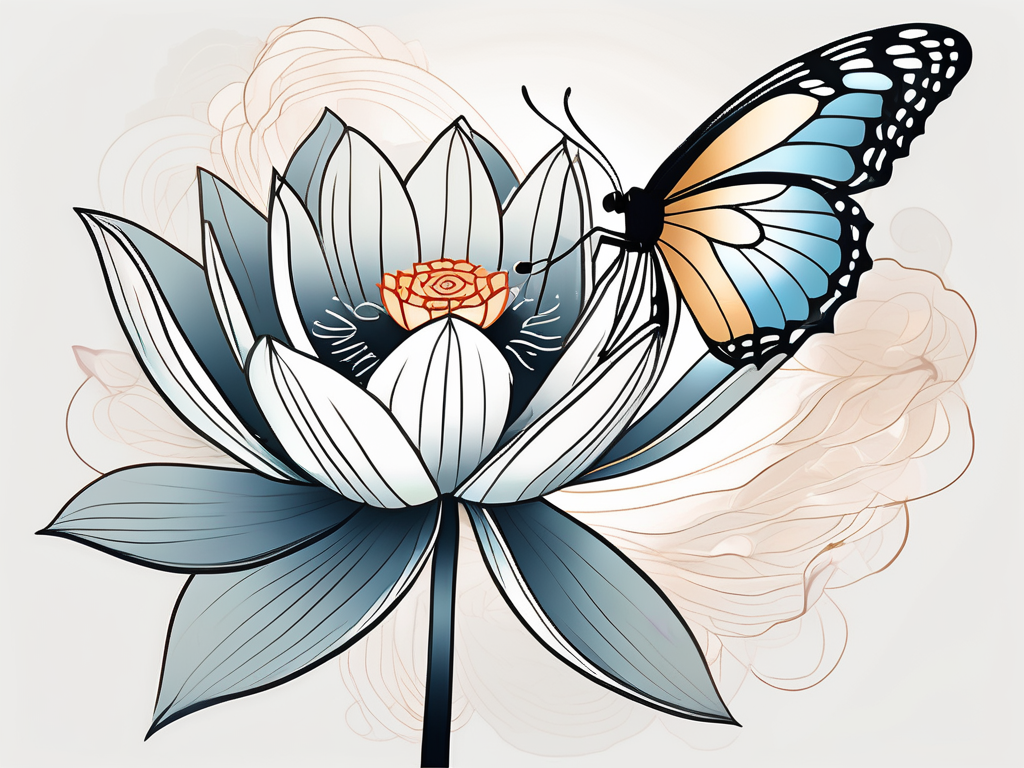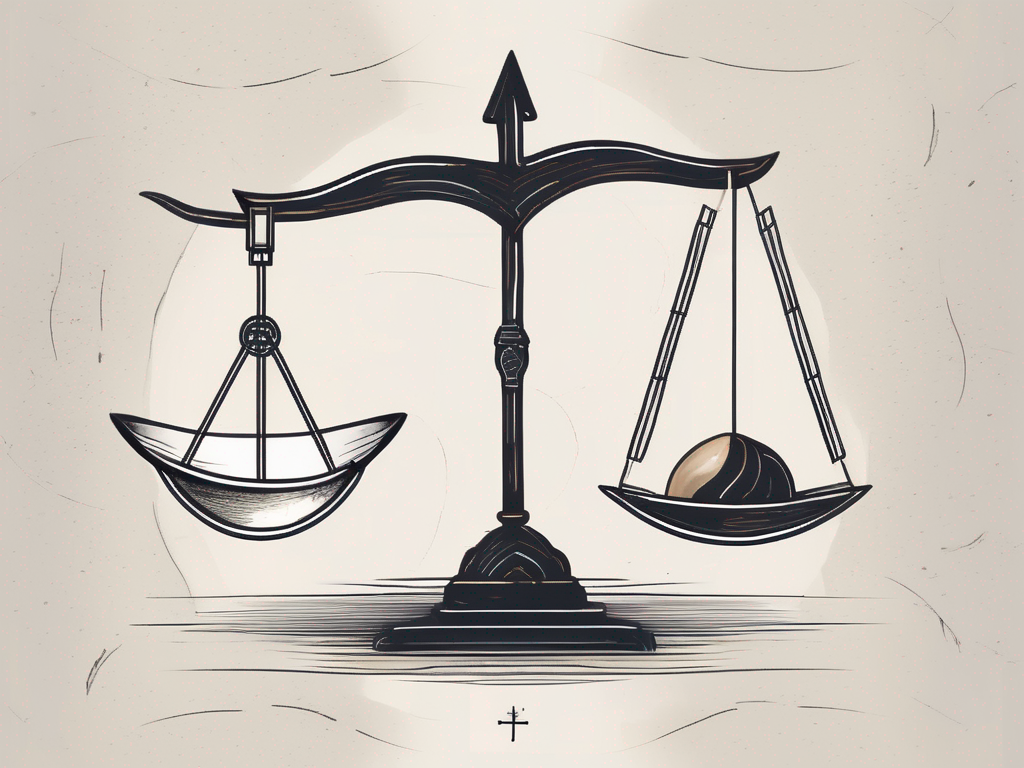Hinduism is a religion rich in history, traditions, and philosophical concepts. Among its many fascinating beliefs, the concept of reincarnation holds a prominent place. Reincarnation, also known as samsara, is the belief in the eternal cycle of birth, death, and rebirth. It is a concept that has captivated the minds of followers for centuries, offering insights into the nature of life, karma, and the pursuit of enlightenment.
Understanding the Basics of Hinduism
To comprehend the concept of reincarnation in Hinduism, it is crucial to understand the basic tenets of the religion. Hinduism is a complex and diverse religion with no single founder or fixed set of beliefs. It encompasses a wide range of practices and philosophies, but at its core, it emphasizes the pursuit of spiritual truth and the interconnectedness of all living beings.
Hinduism is one of the oldest religions in the world, with roots dating back over 4,000 years. It originated on the Indian subcontinent and has evolved and adapted over time, absorbing influences from various cultures and traditions. This rich history has contributed to the diversity and complexity of Hinduism as it is practiced today.
The Core Beliefs and Practices
In Hinduism, the ultimate goal is to achieve Moksha, liberation from the cycle of birth and death. This can be attained through various paths, including karma yoga (the path of selfless action), bhakti yoga (the path of devotion), and jnana yoga (the path of knowledge). These paths are not mutually exclusive but rather complementary, allowing individuals to choose the approach that resonates with them the most.
Karma, the law of cause and effect, is a fundamental concept in Hinduism. It is believed that every action, whether good or bad, has consequences that will be experienced in this life or the next. This understanding of karma reinforces the idea of personal responsibility and the importance of leading a righteous and ethical life.
One of the fundamental beliefs in Hinduism is that the soul, known as atman, is immortal and goes through multiple lives in different physical bodies. This belief forms the basis of the concept of reincarnation. According to Hindu philosophy, the cycle of birth, death, and rebirth is governed by the law of karma. The actions and choices made in one life determine the circumstances and experiences of the next life.
The Role of Deities in Hinduism
Hinduism is known for its pantheon of gods and goddesses. These deities represent different aspects of the divine and serve as guides for devotees on their spiritual journeys. While Hinduism acknowledges the presence of various gods and goddesses, it also emphasizes that they are different manifestations of the same ultimate reality, Brahman.
The deities play a vital role in Hindu belief systems, providing a framework for understanding the complexities of life, including the concept of reincarnation. They serve as models for individuals to emulate and seek guidance from. Each deity has a distinct personality, characteristics, and stories associated with them, making Hinduism a rich and vibrant religious tradition.
Devotion to a particular deity, known as bhakti, is a common practice in Hinduism. Devotees express their love and devotion through prayers, rituals, and offerings. This personal connection with the divine allows individuals to deepen their understanding of themselves and their place in the world.
It is important to note that while Hinduism has a rich mythology and a diverse pantheon of deities, it also recognizes the formless and transcendent nature of the divine. This understanding of the divine as both personal and impersonal allows for a broad range of spiritual experiences and interpretations within the Hindu tradition.
The Philosophy of Reincarnation
The philosophy of reincarnation delves into the intricacies of the eternal cycle of birth, death, and rebirth. It offers insights into the workings of karma and the consequences of actions in one’s current and future lives. Central to this philosophy are two intertwined concepts: the cycle of samsara and the law of karma.
Reincarnation, a fundamental belief in various spiritual traditions, provides a framework for understanding the purpose and meaning of life. It suggests that our existence extends beyond a single lifetime, with each life serving as a stepping stone on our spiritual journey.
In Hinduism, life is perceived as a continuous journey with countless cycles of birth and death. After death, the individual’s soul is believed to pass on to the next life, based on its accumulated karma. This cycle of samsara, the wheel of existence, perpetuates until an individual achieves Moksha, breaking free from the cycle of birth and death.
Each life presents an opportunity for personal growth, learning lessons, and working towards spiritual liberation. It is through the experiences and challenges of each existence that individuals can evolve and transcend the limitations of the material world.
The Cycle of Birth, Death, and Rebirth
In Hindu philosophy, the cycle of birth, death, and rebirth is not seen as a linear progression but rather as a continuous cycle. It is a cosmic rhythm that encompasses all living beings, from humans to animals and even plants.
During each life, individuals are born into different circumstances, environments, and social conditions. These factors shape their experiences and provide opportunities for growth, self-discovery, and spiritual development.
As one life ends, the soul transitions to the next, carrying with it the imprints of past actions and experiences. The cycle of samsara continues until an individual achieves Moksha, breaking free from the cycle of birth and death. This liberation represents the ultimate goal of human existence, where the soul merges with the divine and attains eternal bliss.
The Law of Karma and its Influence on Reincarnation
Karma, meaning “action” or “deed,” is another essential concept in Hindu philosophy. It is believed that every action, thought, and intent has consequences, shaping an individual’s future experiences.
The law of karma operates on the principle of cause and effect. Positive actions generate good karma, leading to favorable circumstances in future lives, while negative actions result in negative consequences. This law serves as a moral compass, guiding individuals to strive for righteous actions and ethical behavior.
Understanding the law of karma allows individuals to take responsibility for their actions and make conscious choices that align with their spiritual growth. It encourages self-reflection, compassion, and the cultivation of virtues such as kindness, honesty, and generosity.
Through the law of karma, individuals can understand the interconnectedness of all beings and the impact of their actions on themselves and others. It emphasizes the importance of living a life of integrity, mindful of the consequences that ripple through the eternal cycle of birth, death, and rebirth.
The Symbolism of Reincarnation in Hindu Scriptures
Hindu scriptures like The Bhagavad Gita and The Upanishads delve into the symbolism and deeper meanings associated with reincarnation. These texts offer profound insights and teachings on the nature of life, the soul, and the pursuit of spiritual enlightenment.
Reincarnation, or the belief in the cycle of birth, death, and rebirth, is a central concept in Hinduism. It is seen as a fundamental aspect of the soul’s journey towards spiritual growth and ultimate liberation. The symbolism of reincarnation is rich and multifaceted, reflecting the intricate tapestry of Hindu philosophy and spirituality.
Insights from The Bhagavad Gita
The Bhagavad Gita, a revered Hindu scripture, presents a dialogue between Lord Krishna and the warrior Arjuna. Within its verses, the concept of karma and its influence on reincarnation is explored extensively.
Lord Krishna emphasizes the importance of fulfilling one’s duties without attachment to the results, understanding that actions motivated by selflessness and righteousness generate positive karma, leading to favorable future lives. This notion of karma as the driving force behind the cycle of birth and rebirth is a key aspect of the symbolism of reincarnation.
Furthermore, The Bhagavad Gita teaches that the ultimate goal of human existence is to attain moksha, or liberation from the cycle of reincarnation. Through selfless action, devotion to God, and the cultivation of spiritual knowledge, one can transcend the limitations of earthly existence and merge with the divine.
Lessons from The Upanishads
The Upanishads, a collection of ancient Hindu texts, provide profound philosophical and metaphysical insights. These texts explore the nature of the soul, the interconnectedness of all beings, and the quest for spiritual liberation.
The Upanishads teach that the realization of one’s true nature as the eternal soul is essential for breaking free from the cycle of reincarnation. Through self-reflection, knowledge, and meditation, individuals can attain a higher level of consciousness and transcend the limitations of samsara.
Moreover, the Upanishads emphasize the interconnectedness of all beings. They teach that every individual is part of a universal cosmic order, and that the actions and choices of one person can have far-reaching consequences for others. This interconnectedness is intricately woven into the symbolism of reincarnation, highlighting the importance of leading a virtuous and ethical life.
Furthermore, the Upanishads delve into the concept of maya, or the illusion of the material world. They teach that attachment to worldly desires and possessions perpetuates the cycle of birth and rebirth, trapping individuals in a never-ending cycle of suffering. By recognizing the transient nature of material existence and seeking spiritual enlightenment, one can transcend the illusion of maya and attain liberation.
In conclusion, the symbolism of reincarnation in Hindu scriptures is a profound and multifaceted concept. It encompasses notions of karma, selfless action, spiritual knowledge, interconnectedness, and the pursuit of liberation. Through the teachings of The Bhagavad Gita and The Upanishads, individuals can gain a deeper understanding of the nature of life, the soul, and the path towards spiritual enlightenment.
Reincarnation and the Hindu Society
The concept of reincarnation has far-reaching implications for the Hindu society, influencing social structure, belief systems, and individual aspirations.
Reincarnation, or the belief in the cycle of birth, death, and rebirth, is deeply ingrained in Hindu philosophy and has shaped the way society functions. It is not merely a religious concept but a fundamental aspect of the Hindu way of life.
Hinduism teaches that every individual has an immortal soul, known as the Atman, which undergoes multiple lifetimes in different physical bodies. These bodies are seen as temporary vessels for the soul’s journey towards spiritual enlightenment.
The Impact on Social Structure and Caste System
Reincarnation plays a significant role in the Hindu caste system, a hierarchical social structure that assigns individuals to specific castes based on their birth. The belief in karma and reincarnation reinforces the idea that an individual’s position in society is determined by their past actions and merits.
According to Hindu beliefs, the circumstances of one’s birth, including their caste, are a result of their actions in previous lives. Those born into higher castes are believed to have accumulated good karma in their past lives, while those in lower castes are seen as having accumulated negative karma.
This hierarchical structure, although controversial and often subject to criticism, has been deeply ingrained in Hindu society for centuries. It has shaped social interactions, occupational choices, and even marriage practices. The caste system, influenced by the concept of reincarnation, has both positive and negative effects on individuals and society as a whole.
Reincarnation and the Pursuit of Moksha
The concept of reincarnation serves as a guiding force for individuals seeking spiritual liberation and the attainment of Moksha. It provides hope, encouragement, and motivation to embark on a spiritual journey of self-discovery and growth.
For Hindus, the ultimate goal of life is to break free from the cycle of birth and death and achieve Moksha, liberation from the cycle of reincarnation. Reincarnation acts as a reminder that each life is an opportunity to strive for spiritual advancement and ultimate liberation.
The pursuit of Moksha involves breaking the cycle of birth and death, transcending worldly attachments, and realizing one’s true nature as the eternal soul. It is a deeply personal and introspective journey that requires self-discipline, meditation, and the practice of virtues such as compassion, truthfulness, and non-violence.
Reincarnation provides a framework for understanding the challenges and lessons presented in each lifetime. It encourages individuals to learn from their past mistakes, cultivate positive qualities, and strive for spiritual growth in order to attain Moksha.
Through the belief in reincarnation, Hindus find solace in the idea that life is not limited to a single existence but rather a continuous journey towards spiritual enlightenment. It instills a sense of purpose and responsibility, urging individuals to make conscious choices that align with their spiritual aspirations.
Debates and Interpretations of Reincarnation
Over the centuries, Hindu scholars and philosophers have engaged in debates and discussions regarding the concept of reincarnation, leading to differing interpretations and viewpoints.
Traditional vs. Contemporary Views
While traditional interpretations of reincarnation have held sway in Hinduism for centuries, contemporary perspectives offer alternative understandings. Some contemporary scholars propose that reincarnation can be seen as a metaphorical concept, symbolizing personal growth and transformation rather than a literal rebirth of the soul.
The variety of interpretations reflects the diverse and evolving nature of Hinduism as a living religion.
Reincarnation in the Context of Other Religions
Reincarnation is a concept that extends beyond Hinduism and is found in various forms in other religions and belief systems. Buddhism, for example, shares a belief in reincarnation, albeit with different nuances and interpretations.
Comparative studies exploring the similarities and differences between different religious perspectives on reincarnation offer valuable insights into the common human quest for understanding the mysteries of life and death.
In conclusion, the concept of reincarnation in Hinduism presents a fascinating exploration of the eternal cycle of birth, death, and rebirth. It is a belief that influences the philosophical, moral, and social fabric of Hindu society. Through its rich symbolism and profound teachings, reincarnation invites individuals to reflect on their actions, pursue spiritual growth, and ultimately seek liberation from the cycle of samsara. The diverse interpretations and debates surrounding reincarnation highlight the continuous evolution and adaptability of Hinduism as a vibrant and complex religion.












